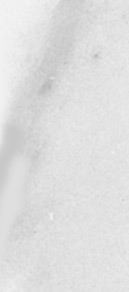

Prentice Hall and Sun Microsystems. Personal use only; do not redistribute.
248
Chapter 11 The JSP page Directive: Structuring Generated Servlets
markup tags; it is discussed in Chapter 14 (Creating Custom JSP Tag Librar
ies).
The
page
directive lets you define one or more of the following case sen
sitive attributes:
import
,
contentType
,
isThreadSafe
,
session
,
buffer
,
autoflush
,
extends
,
info
,
errorPage
,
isErrorPage
, and
language
.
These attributes are explained in the following sections.
11.1 The import Attribute
The
import
attribute of the
page
directive lets you specify the packages that
should be imported by the servlet into which the JSP page gets translated. If
you don't explicitly specify any classes to import, the servlet imports
java.lang.*
,
javax.servlet.*
,
javax.servlet.jsp.*
,
javax.serv
let.http.*
, and possibly some number of server specific entries. Never
write JSP code that relies on any server specific classes being imported auto
matically. Use of the
import
attribute takes one of the following two forms:
<%@ page import="package.class" %>
<%@ page import="package.class1,...,package.classN" %>
For example, the following directive signifies that all classes in the
java.util
package should be available to use without explicit package iden
tifiers.
<%@ page import="java.util.*" %>
The
import
attribute is the only
page
attribute that is allowed to appear
multiple times within the same document. Although
page
directives can
appear anywhere within the document, it is traditional to place
import
state
ments either near the top of the document or just before the first place that
the referenced package is used.
Directories for Custom Classes
If you import classes that are not in any of the standard
java
or
javax.servlet
packages, you need to be sure that those classes have been
properly installed on your server. In particular, most servers that support
automatic servlet reloading do not permit classes that are in the auto reload
ing directories to be referenced by JSP pages. The particular locations used
for servlet classes vary from server to server, so you should consult your
server's documentation for definitive guidance. The locations used by Apache
Tomcat 3.0, the JSWDK 1.0.1, and the Java Web Server 2.0 are summarized
Second edition of this book: www.coreservlets.com; Sequel: www.moreservlets.com.
Servlet and JSP training courses by book's author: courses.coreservlets.com.
footer
Our partners:
PHP: Hypertext Preprocessor Best Web Hosting
Java Web Hosting
Jsp Web Hosting
Cheapest Web Hosting
Visionwebhosting.net Business web hosting division of Web
Design Plus. All rights reserved


